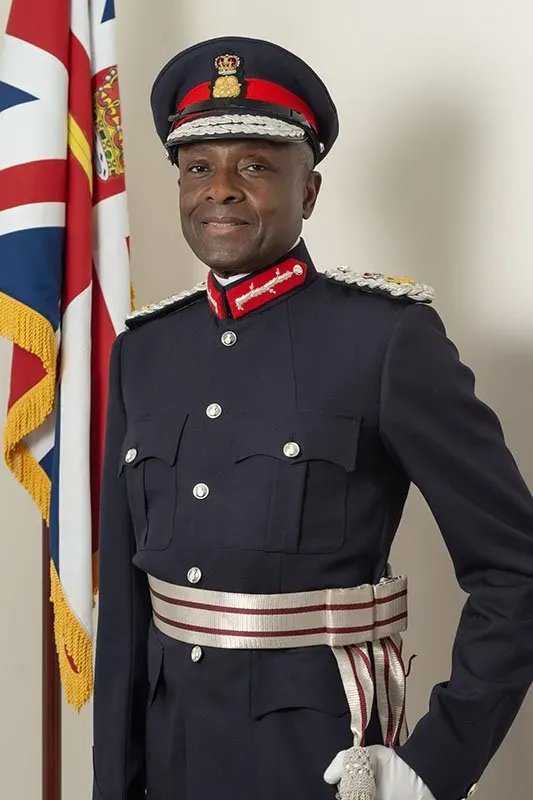Derrick Anderson’s journey is one of extraordinary achievement, marked by firsts that reshaped the face of local government in Britain.
Born in London’s Mile End and raised in Birmingham, Derrick grew up in a city alive with both challenge and opportunity for Black families in post-war Britain. As a young man, he excelled not only academically but also athletically. While studying at Birmingham University, he became the British Universities Decathlon Champion – a gruelling contest of ten events that tested both strength and endurance. Alongside his sporting triumphs, Derrick achieved a double honours degree in Psychology and Physical Education, proving himself both physically and intellectually formidable.
After university, he chose public service. He trained as a probation officer, worked for the national charity NACRO (the National Association for the Care and Resettlement of Offenders), and completed a master’s degree in social work at Leicester University. By the early 1980s – a time when Britain was wrestling with social unrest and questions of race and opportunity in the wake of uprisings in Brixton, Handsworth, and Toxteth – Derrick was already emerging as a thoughtful, determined leader.
In 1982, he became deputy director of Action Sport West Midlands, opening doors for young people through sport. He went on to serve as deputy director of Yorkshire Arts, and later as Director of Cultural Services at Wakefield Council, helping communities flourish through culture and creativity. He was also a founding force behind the Kokuma Dance Group, celebrating Black heritage and storytelling through performance.
Then came a defining chapter in Wolverhampton. In 1991, at just 34 years old, Derrick Anderson became the first Black director of a Wolverhampton Council department. Five years later, in 1996, he made history again, appointed as the first Black Chief Executive of a local authority in England and Wales.
His leadership coincided with a new era in British politics. The late 1990s and early 2000s were marked by New Labour’s focus on regeneration, community renewal, and investment in cities. Wolverhampton, under Derrick’s guidance, was part of this transformation. He steered the city through ambitious programmes of urban renewal and social investment, ensuring Wolverhampton could stand proud on the national stage.
The most visible achievement of this era came in 2000, when Wolverhampton was officially granted city status – a recognition of its growth, heritage, and future potential. Derrick’s leadership was central to that success.
In 2003, his contributions were recognised at the highest level when he was awarded the CBE (Commander of the Order of the British Empire) for services to local government.
Derrick Anderson’s story is not only one of personal excellence but also of transformation. From decathlon champion to pioneering Chief Executive, he broke barriers at a time when Black leadership in public institutions was rare. His vision for Wolverhampton mirrored the national mood of regeneration and renewal, leaving a legacy of progress, representation, and pride that continues to shape the city today.








